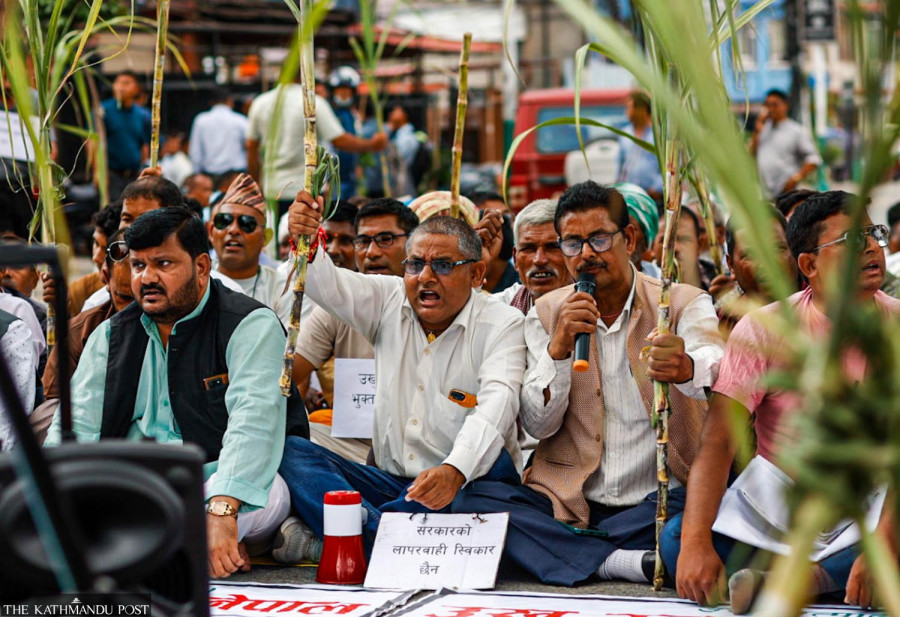Editorial
Don’t be cruel
The plight of sugarcane farmers is a sign of continued neglect of the agriculture sector.
The government has compelled yet another group to take to the street. This time, sugarcane farmers from around a dozen districts, particularly from the country’s southern part, are in Kathmandu demanding that the decision to halve the subsidy amount provided to them be revoked and the previous level of subsidies be restored. The government had been providing Rs70 a quintal in subsidy to the farmers producing sugarcanes. But a Cabinet meeting on July 7 decided to halve the amount even as the farmers in the country had been complaining that production costs had risen sharply, making their trade unsustainable.
This is just a case in point. Nepali farmers in general are compelled to struggle against multiple problems. They are deprived of even basic things like fertilisers, seeds, reliable irrigation, access to markets and fair price to their goods and struggle to get the money for the produce they sell. These are age-old problems. Authorities have done nothing substantive to improve things even as farmers have long been fighting for their basic rights.
To add to their woes, nature-induced disasters often ruin the farmers’ cultivation or harvest. Heavy losses due to inundation, or drought at the time of cultivation, or crops destruction by hailstorms or strong winds during harvest—these are all becoming regular phenomena. The frequency, intensity and unpredictability of such extreme incidents have increased of late owing to climate change. Even scientists are struggling to figure out the extreme weather patterns. Thus, tackling these problems requires a comprehensive policy along with preventive measures and insurance coverage to support farmers when they face huge losses. Otherwise, the country can retain people in agriculture no more.
The majority of the population in Nepal were in the agricultural sector for generations—and that is in fact still the case. But of late the country is becoming increasingly dependent on imports of agricultural goods as our produce and products cannot compete against imported goods, mostly from neighbouring countries where the state provides big support to farmers.This is the case even for sugarcane farmers. Nepalis consume a lot of sugar, gobbling down around 275,000 tonnes of sugar annually. While the domestic output amounts to 150,000 tonnes, the rest is imported.
If there is one section of society that most deserves state support, that is farmers. Nepal has been governed mostly by communist prime ministers and finance ministers for the past few decades. While unveiling policy and programmes and fiscal budgets, they make big promises on agricultural reforms. But in practice agriculture remains among the most neglected sectors. Successive prime ministers and finance ministers in recent governments appear to be competing to offer waivers to big businesspeople—even as their core business is importing and selling goods. Prime Minister KP Sharma Oli and ministers in his Cabinet, for instance, appear bent on giving a waiver to the companies that have defaulted on billions of rupees they owe to the Nepal Electricity Authority. This payment is in lieu of dedicated power supply they were getting when the general public were facing hours-long load shedding. In this condition, perhaps it is also not a surprise that a Cabinet headed by a communist prime minister Oli is cutting vital subsidies being provided to sugarcane farmers.




 18.12°C Kathmandu
18.12°C Kathmandu














